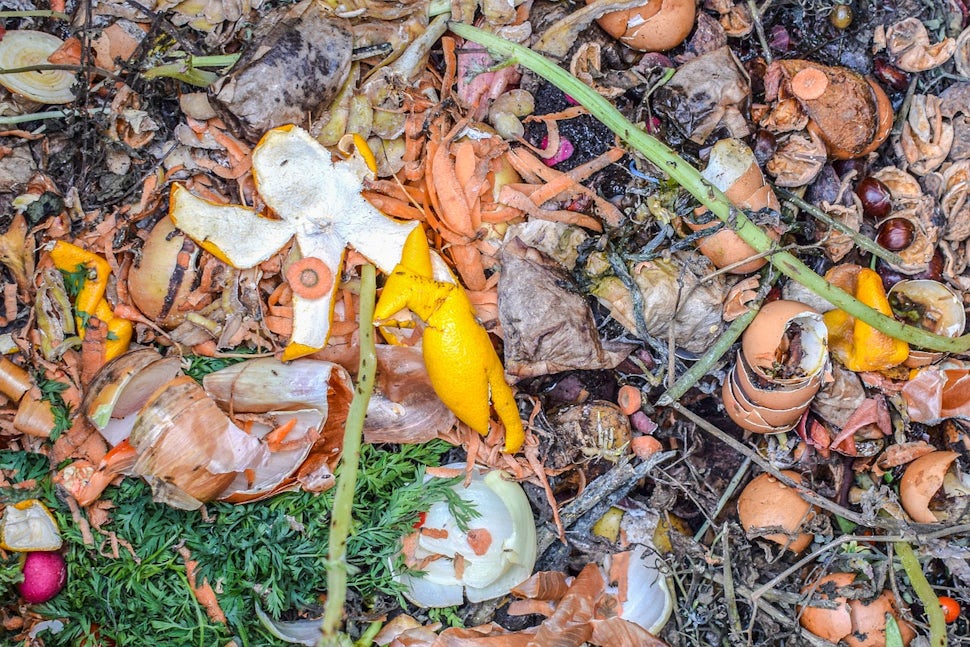Organic Trash Is Still Trash
Did you know that a piece of lettuce takes twenty five years to decompose in a landfill? Biodegradable things aren’t as biodegradable as you think...

Have you ever been hiking along munching on an orange or banana and thought, “Hey, this is biodegradable right? I’ll toss it here and it will decompose naturally. I’ll even be extra considerate and chuck it over there where nobody else will see it. In fact, I’m doing my part by helping put valuable nutrients back into the earth where they’re most needed!”
If you answered yes and have thought any of those things before, I’m here to politely ask you to stop thinking them. I know it might be tempting to leave your biodegradable trash on the side of the trail, but it leaves a bigger impact than you might realize.
Biodegradable
Did you know that a piece of lettuce takes twenty five years to decompose in a landfill? Twenty. Five. Years. Most biodegradable things aren’t as biodegradable as you think. Most organic materials only biodegrade completely under a very specific set of environmental circumstances, like a compost pile—and just because something is natural does not mean that it’s biodegradable.
Under the best circumstances (in a compost pile) an orange peel takes 6 months to decompose. In a dry climate (or on the side of a trail) it takes much longer than that. Additionally, citrus rinds have natural insect-repelling oils which means bugs and small organisms that you might think would be eating it won’t actually be touching it at all. Most other animals aren’t interested in an orange peel either, they want to eat the part of the orange you just ate.
Other natural food items are even worse. Sunflower hulls and pistachio shells take a minimum of 3 years to decompose, and under many circumstances can last nearly forever. Some construction companies even press them together to form paneling to build houses, which are distinctly not biodegradable. So don’t go dropping your banana peel thinking it will be gone in a matter of days or weeks—we’re talking multiple years for most of these food products to totally disappear.
Wildlife
Introducing foreign foods into an ecosystem is a surefire way to add unnecessary stress to that ecosystem. Even something as simple as an apple core can have a long-lasting impact on the environment. Apple cores contain apple seeds which grow into apple trees which, unless you’re hiking in Asia, aren’t native to wherever you are. Introducing apple trees to a place they aren’t supposed to grow can have a cascading effect up and down the food chain.
Alternatively, sunflower hulls are actually used in gardening as weed-suppressing mulch. If you want a path through your garden where weeds won’t grow, just put some sunflower hulls down. If you want a wilderness where wildflowers and shrubs and succulents and trees grow, it’s best you pack out your sunflower shells with the rest of your trash.
Additionally, artificially salted foods like sunflower seeds and pistachios introduce unnatural levels of sodium into the environment. Salt is actually pretty rare in nature, especially in certain environments. Attracting animals to trails for unnatural reasons and teaching them to rely on human food for nutrients further damages a fragile ecosystem. Every so often, mountain goats licking salt from human urine costs taxpayers millions of dollars.
Beauty
Nobody went hiking to see your saliva-covered sunflower seed hulls on the trail. Nobody went to the mountains to see your orange peel tucked under a rock. Nobody went to the beach to see a slimy, half-decomposed banana peel baking on the sand.
I think we can agree that we don’t go to the forest to look at trash, we can do enough of that under our own couches.
As tempting as it may be to leave your orange peel or spit sunflower seeds, organic trash is still trash and still needs to be packed out with everything else. Do yourself (and everyone who hikes after you, and all the plants and animals who were there before you that you are there to see) a favor and put in the extra .01% effort to walk that trash back out to a trash can with you.
We want to acknowledge and thank the past, present, and future generations of all Native Nations and Indigenous Peoples whose ancestral lands we travel, explore, and play on. Always practice Leave No Trace ethics on your adventures and follow local regulations. Please explore responsibly!
Do you love the outdoors?
Yep, us too. That's why we send you the best local adventures, stories, and expert advice, right to your inbox.








